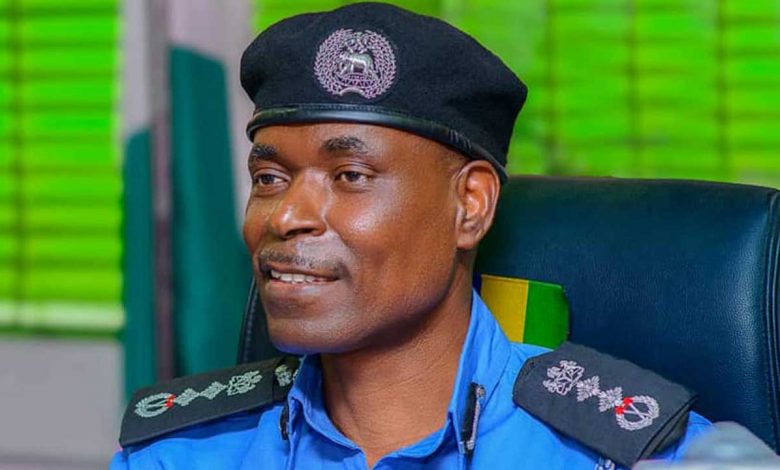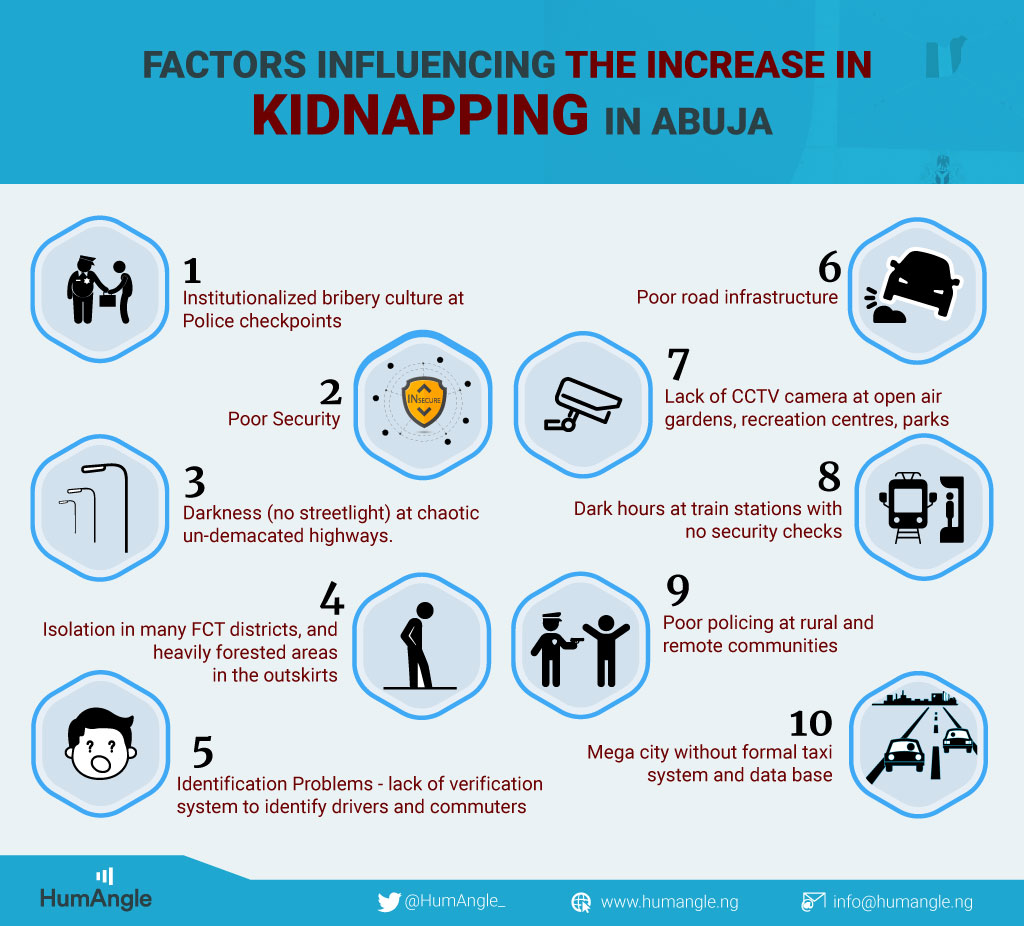Kidnapping On The Rise In Abuja; Police Insist City Is Safe
While Police maintain “every area in Abuja is safe,” stories from victims prove otherwise, as more abduction cases are recorded in and around Nigeria's capital.

Rafiu Motunrayo, a law graduate from Olabisi Onabanjo University in Ogun State, Southwest Nigeria, was eager to register for her classes at the Nigerian Law School in Abuja, Nigeria’s capital.
In the first week of Feb. 2020, she embarked on a journey to the school’s campus in Bwari. It was her first time travelling to the campus and she did not know what to expect. She anticipated a long bus ride and possibly some discomfort from sitting in one spot for hours but certainly not getting kidnapped.
On the bus ride, Motunrayo remembers receiving a call from her anxious mother every few minutes who constantly asked how she was doing. Later in the journey, about 20 men dressed in army uniforms began shooting at their bus.
“That was when I started thinking, ‘this is bad’. People ran from their cars. I had no choice but to lie flat behind the driver’s seat,” she narrated.
Two men spotted Motunrayo and shouted at her to open the door. She feared she was going to be killed. “What they were carrying… it wasn’t a knife I was used to, it was a cutlass. They had AK-47s. I couldn’t run,” the law graduate said.
“Five of us were first captured. We walked for hours through the wilderness. We weren’t in the bush or the forest. We were out there for six days and it was like the land never ran out. They knew the land well.”
Throughout those days, she walked barefooted—having left her slippers on the bus due to the chaos—for more than three hours at a time. The armed uniformed men had their faces covered and spoke Fulfulde or pidgin. “Fulanis are used to rearing cows, they are not tired of walking,” she said, confirming that her abductors were criminal herders of the Fulani ethnic group, known for itinerant living.
“It took about three hours before we got to the place where they rear cows and I saw many workers. They brought cooked rice, water, drugs, and smoked. During those six days, we did not have much food or water. You had to beg for water and the water [they gave] was so small. We drank a small portion of water from the bottle cap because that’s all we were given. It was dirty.
I couldn’t bathe and had to wear my clothes for six days. It was cold and the grass was too pointy to sleep comfortably. On the fourth day, I had to cook rice and palm oil but I had no appetite. I was crying. My mom had just called before I was kidnapped. She must have been worried.”
Motunrayo spoke at length about the torture, especially of the abducted men who were required to take off their shirts while they endured beatings on their backs, heads, and faces.
“They beat you so you shout at the people who can give you money for your release. You cannot speak your native language and had to speak pidgin. They will hit you with the gun and slap you for using your language. It was too much,” Motunrayo said, adding that thankfully she was spared the bashing.
She was released on Sunday, Feb. 9, to the Kaba-Abaji main road. They were each given N3,000 to take a cab. Her mother had taken a nine-hour journey from Ogun State to Kogi State to meet her daughter. When she saw her child’s fragile state, she burst into tears. Motunrayo remains hopeful and grateful she is alive.
“I don’t pray for this to happen to any enemy of mine. I am thankful to those who posted my picture on social media and called my parents. I am thankful for the soldier who helped me with my phone when I was released. I am thankful to everyone who prayed about this. I didn’t know that I am this loved,” she said.
Despite Motunrayo’s hope, there is still a looming question about how to stay safe when travelling in and out of Abuja. Her recommendation reflects the predicament of how many Nigerians cannot afford to buy themselves out of insecurity. “Not all of us have money for flights. And even if the car is registered, you could still get kidnapped. My advice is to look for a way to pay for a flight. If you can’t do that then pray if you must travel on the road,” she advised.
Kidnapping isn’t new in Nigeria. It has been widespread in the southern regions propelled by the oil crisis and there have been abductions by the terrorist group, Boko Haram, in the north. The occurrences might not be unrelated to the phenomena of mass unemployment, chronic poverty, and poor infrastructure.
Stories like Motunrayo’s have become more commonplace and kidnapping has become a national security risk, especially for people travelling to Nigeria’s capital. With an upsurge of unemployed people migrating to cities in search of ways to make money, no area is free of this epidemic. Abuja, the federal capital, once thought one of the safest cities in the country has now been flagged as a hotbed of growing insecurity.

A new report titled Rising Insecurity in Abuja, released by SBM Intelligence, tracks this trend and notes that kidnapping has been rising steadily in the city since 2019. These stories are of everyday people who oftentimes do not have a wealthy background. Whether it is Rafiu Montunrayo travelling to register for law school, or trader Mannir Awal Addo kidnapped on the Abuja-Kaduna highway and forced to pay his abductors $1,300, the assumption that these kidnappings are a rarity in an otherwise stable environment is unconvincing.
Speaking to HumAngle, FCT Police Command spokesperson, Anjuguri Menzah, maintained that “every area in Abuja is safe”. On the ground, those who have been abducted and have travelled through areas of risk express a different sentiment. GardaWorld, last October, published an alert regarding the nine victims abducted that month. A brief paragraph was dedicated to how individuals could keep safe, noting that the “security situation in Nigeria remains complex,” yet it might be helpful to use the experiences of abductees’ labour to recount to develop comprehensive resources that are readily accessible and educate individuals hoping to travel safer and smarter in Abuja and beyond.
Support Our Journalism
There are millions of ordinary people affected by conflict in Africa whose stories are missing in the mainstream media. HumAngle is determined to tell those challenging and under-reported stories, hoping that the people impacted by these conflicts will find the safety and security they deserve.
To ensure that we continue to provide public service coverage, we have a small favour to ask you. We want you to be part of our journalistic endeavour by contributing a token to us.
Your donation will further promote a robust, free, and independent media.
Donate HereStay Closer To The Stories That Matter




